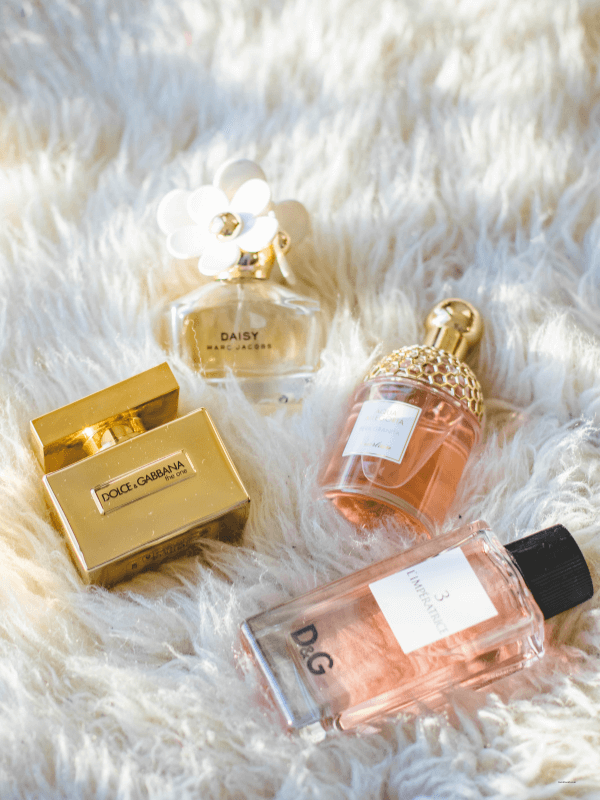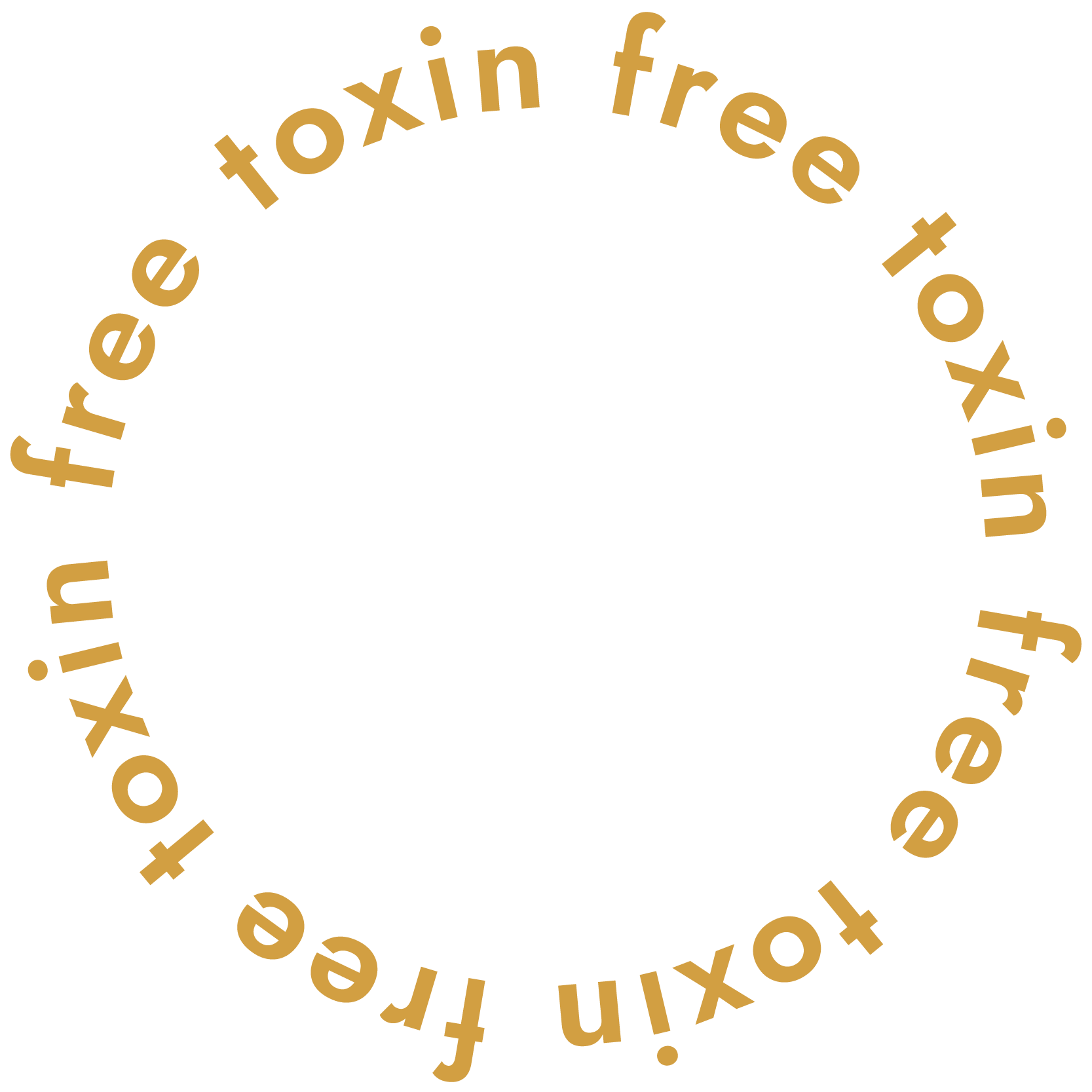Apple Podcasts | Spotify
Just because a company claims to sell non-toxic perfume doesn’t mean it’s actually free from harmful chemicals.
As a former environmental toxins attorney turned Clean Living Coach, I’ve discovered that most “clean” fragrance brands still use synthetic ingredients and denatured alcohols that can disrupt hormones and impact health.
The truth is, there are only four truly clean perfume companies on the market right now, and the most popular “clean” brands don’t make the cut.
Understanding what makes a perfume truly clean requires looking at three key factors: the alcohol base, fragrance ingredients, and transparency in labeling.
While many brands claim to use “safe synthetics,” this term has no regulatory definition. It often masks using petroleum-derived chemicals that haven’t been properly studied for long-term health effects.
In this episode, I break down exactly what to look for in a non-toxic perfume, why denatured alcohol is problematic, and which four brands are creating genuinely clean fragrances. Whether you’re dealing with sensitivities or simply want to make informed choices about what you put on your body, you’ll learn how to evaluate perfume brands beyond their marketing claims.
In today’s episode, we’re chatting about:
- Why “safe synthetics” is a meaningless marketing term
- The truth about denatured alcohol in perfumes
- How to identify truly clean fragrance ingredients
- The only four brands creating genuinely clean perfumes
- What makes a perfume actually safe versus just “clean” marketed
3 Concerning Ingredients in Traditional Fragrance
Some very specific ingredients are lurking in your perfume or cologne that you need to know about. Phthalates, lilial, and musk ambrite are the big controversial ingredients. We have really good science that shows that these ingredients in perfume negatively impact our health. There are a lot of others, but these are the big ones that are hormone-disrupting, and you should be concerned about them.
1. Phthalates
The first one is probably the one that most people are aware of. Diethyl phthalate is an endocrine-disrupting chemical. It causes lots of reproductive toxicity, infertility, and thyroid issues. There is so much science and research showing how problematic phthalates are for women and men. Studies show that if you avoid endocrine disruptors, like phthalates and parabens, they can leave your system in as little as 28 days. The breast tissue you have can actually reverse any breast cancer risk markers. I talk about this more in episode #59.
Phthalates are commonly used in conventional perfume as a plasticizer. Phthalates help a fragrance stick and last a lot longer. It’s also used in the alcohol to denature it. They are very commonly used in perfume, but we definitely want to avoid them.
2. Lileal
Lileal is a reproductive toxin that has been banned in the European Union (EU) since March of 2024, but they knew five years prior. The EU gave perfume companies five years to stop using this ingredient, and now the ban is in effect.
Lillil is a synthetic chemical. It’s a very popular fragrance ingredient. People love the smell of it, so it’s used so much. It’s also one of those ingredients that can lend itself to a longer-lasting fragrance.
3. Musk Ambrite
This ingredient specifically has been linked to early puberty in girls. Musk ambrette is a synthetic chemical that replaces animal-based musk in perfumes and colognes. It used to use secretions from the glands of animals like musk deer, and that is expensive and problematic, and people find it unethical. In episode #87, I talk about it being a hormone disruptor and why you want to avoid Musk Ambrite.
How to Find Truly Non-Toxic Perfume Companies
You probably see all kinds of Instagram ads for ‘clean, non-toxic perfume.’ These companies are trying to position themselves as safer, less toxic alternatives to traditional perfume. But I want you to look at these to decide if they are truly toxin-free.
Transparency
The first thing I look for is transparency and actual ingredients. If you are looking at perfume, it will just say fragrance. That’s it. They’re not going to tell you what the actual ingredients are.
Fragrance is proprietary. It is a protected intellectual property that they do not have to disclose, so most companies don’t. You won’t ever know what’s in it.
I look to see if they are listing the actual fragrance ingredients. It should be a pretty long list! If they’re not being transparent, move on. That is not clean.
Botanical Fragrance vs. Synthetic Ingredients
The second thing you want to look for is whether they use botanical fragrances or synthetic ingredients. This is an important distinction. We know a ton about how botanicals and plants help our health rather than adversely impacting our health.
But we don’t know much about the synthetic fragrance ingredients, what’s being used in them, and what they do to our bodies. When I look for a clean perfume, I look for botanicals. I want to see sandalwood, rose, bergamot, or neroli. I want to see actual plants on the list of ingredients.
You are going to see the words ‘safe synthetics’ everywhere. Companies like Dime, Henry Rose, and Skylar are making synthetic perfume. There might be some botanicals in there, but you’re going to see a lot of synthetic ingredients, and they’re going to say these are safe synthetics.
Listen: The words ‘safe synthetics’ don’t mean anything. They mean whatever the brand wants them to mean. There’s no regulatory or standard definition. There’s no agreed-upon definition. It literally means nothing.
So when I review perfumes and see a list of synthetic ingredients, my question is always, “According to whom are they safe?” When I go in and start researching them, I see a lot of issues. The problem with ‘safe synthetics’ is that most of them are new, and we haven’t done much research on them. They could potentially be fine, or they could potentially not be fine.
The Alcohol Used
The majority of the ingredients of the perfume are made up of alcohol. That’s how it aerosols and sprays into the air, or you put it onto your skin. Here’s what you need to know about the alcohol that is found in perfumes.
The United States has very strict alcohol regulations. If a company wants to make a perfume and sell it, they have to do what we call denaturing. For example, let’s say you want to use pure, organic sugarcane alcohol in your perfume and sell it. If you do not denature that alcohol with something toxic to drink, something that makes it poisonous for consumption, then the government is going to make you pay alcohol taxes. They’re going to assume you’re selling perfume that people are going to go home and drink. They’re just going to treat you like you are selling a drinkable alcoholic beverage, even though you’re very clearly selling a perfume. By using pure alcohol, the cost of your perfume pretty much doubles.
The other piece that makes this hard is if you want to use pure alcohol in your perfume. Whoever manufactures the perfume needs a liquor license, which is very difficult, as you heard in episode #104.
Our government makes it very difficult to make a non-toxic perfume. This needs to change if we want the industry to move in a different direction.
True Non-Toxic Perfume Companies
There are only four companies that I have found (and I’m sure there are smaller companies out there) that use organic or non-denatured alcohol as the base of their perfume. All the scent that’s coming from the perfume is 100% botanical. They’re not using any synthetic ingredients whatsoever, and they fully disclose every single ingredient in their fragrance on their website. I fully support these companies and encourage you to do so as well!
- Wyld Notes
- ESAS Beauty (code WENDY20 for 20% off)
- One Seed
- Abel Fragrance
These are the only four companies I know that use 100% botanical ingredients and sell true, non-toxic perfume. Everyone else is either using synthetics they’re not disclosing or denaturants in their alcohol.
Nothing is more important to our health than what we put on our bodies every day. We’re not just putting perfume on our skin; it actually gets into our bloodstream, and we’re inhaling it. Think carefully about how important using synthetic perfume is to you, and if you are somebody who loves the smell of synthetic perfume, that’s okay. We’re toxin-free-ish for a reason!
If you enjoyed this week’s episode, please:
- Leave a positive review or rating wherever you listen
- Shop toxin free products on my Toxin Free Shopping Guide
- Download your free 25 Toxins to Avoid
- Post a screenshot, share what you loved, and tag me on Instagram @wendy_toxinfreeish
- Want to ask me a question to get answered on the podcast? Leave me a voice message here.
Related Episodes:
Episode 58: Leaving the Toxins Behind: From Big Fragrance to Botanical Fragrance w/ Seda & Amanda of ESAS Beauty
Episode 59: Eliminating Phthalates and Parabens Can Reduce Breast Cancer Risk by 73%
Episode 87: The Ingredient to Avoid If You’re Concerned About Early Puberty in Children
Episode 104: The Next Big Thing in Clean Fragrance: The Story of Creating Wyld Notes with CEO Gaya Samarasingha


+ show Comments
- Hide Comments